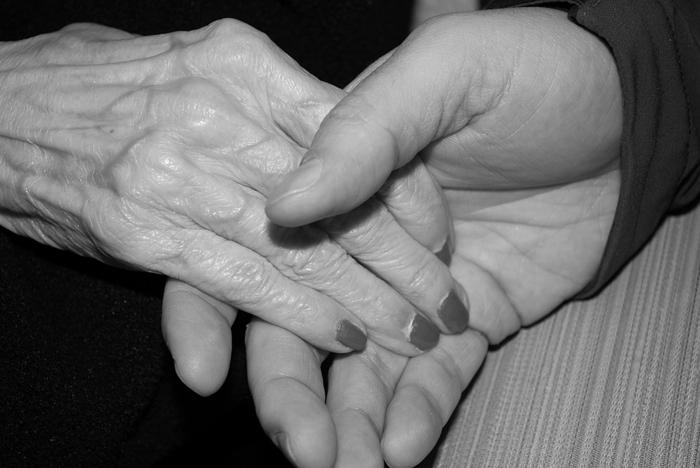Old people: get off their lawns
Apr 7, 2016
It was slightly past midnight when I found out that my grandfather had died.
“Yeye passed away a few hours ago,” my mother told me. “Organ failure.”
From then on, a picture of him sat on a drawer by the front door, flanked by a pair of candlesticks and covered by a carving of two ebony hands grasped in prayer. He was smiling.
And yet, whenever I pass by that photo on the way to school, I feel nothing. All that my mind can conjure up are flashes and half-memories: the brush of his arm against my shoulder, the sound of his voice growling across a room, his trembling hands trying and failing to grasp a pair of chopsticks.
Because in the end, he was just another aged, wrinkled face that needed to be taken care of. His was just another face waiting to die.
But my grandfather was not the only one. In 2010, the U.S. Census reported that 13 percent of the U.S. population was comprised of people ages 65 and up. It is predicted that this percentage will rise above 20 percent by 2050.
This is an entire fifth of the population that we have forgotten.
Now, from a purely mathematical, logical perspective, we have not forgotten them without merit. In 2010, the employment rate among this age group was a mere 16.2 percent, and according to a 2014 study from the journal “Health Affairs,” about three times more money is spent on the elderly than on the average working-age adult when it comes to health care.
So for some, it’s easy to subconsciously view one’s grandparents as simply another mouth to feed, as just something to be taken care of out of obligation. How important can the elderly be when they’re already riddled with disease and the touch of death? How can they matter when they’re already losing their memories, flitting in and out of reality?
The answer is simple: because of this mindset, once you have lived your life to its fullest, you will be forgotten too.
The evidence is everywhere. Take a look at the television: the elderly are consistently portrayed as victims of illness, wise sages confined to wheelchairs, and lost causes to be force-fed mush for comedy. If they aren’t losing their minds, their burdened family members certainly are.
There are exceptions to the rule, of course, such as the still-vibrant actress Betty White. However, actors of her age are often popular simply because the idea of elderly people using dirty language and speaking their mind is a foreign concept to the general public.
Take the recent movie “Dirty Grandpa,” based solely on a single idea: what if an old person swore a bunch and had sex?
All of this is just evidence that our world looks down at those who have lived long enough. They are either objects of pity or objects of derision.
But it is essential to remember that every single one of these people is more experienced, more wise than anybody else. If anybody deserves respect, it’s them.
These people were students, workers, brides, grooms, fathers, and mothers. These people have made sacrifices and conquered life, and yet, because of their age, are easily cast aside now that they can no longer directly contribute to the economy.
So out with the old and in with the new; off to the nursing home it is, where the elderly can be sequestered away from the families they raised. In fact, according to The Family Caregiver Alliance, over eight million Americans rely on long-term care services like nursing homes, which have somewhat of a reputation for instances of abuse and neglect.
Now, it is completely unfair to label all nursing homes as smelly hovels for people unwanted by family. Each and every facility is completely unique. But I can still distinctly remember the only time that I have entered one of these such homes.
It was one of the upper-end ones apparently, located in downtown Wayzata. The floors were carpeted, the employees friendly, the sunlight warm and bright as it streamed into each of the rooms. Dinner was being served, I remember. It seemed to be an event.
The woman my friends and I had come to visit spoke to us about many things. She talked about her children, her sweaters, how much she enjoyed sitting in the sun.
She had stories to tell and opinions to voice, and although her room was comfy, it seemed obvious that she had been waiting for somebody like us for a while. Somebody to listen, to not speak back to her using baby talk.
I tried picturing my grandmother in that room, surrounded by scrapbook photos and memoirs of a life long gone. After years of fighting and battling in order to survive, I imagined her life ending in a cozy little room, sitting still and waiting for somebody to visit.
How frail she looked.
We must remember that these people are people, and they deserve more respect than anyone else. It is time to give back to them what they gave to us, even if their end approaches.
Because that end is not yet here. Not quite.


